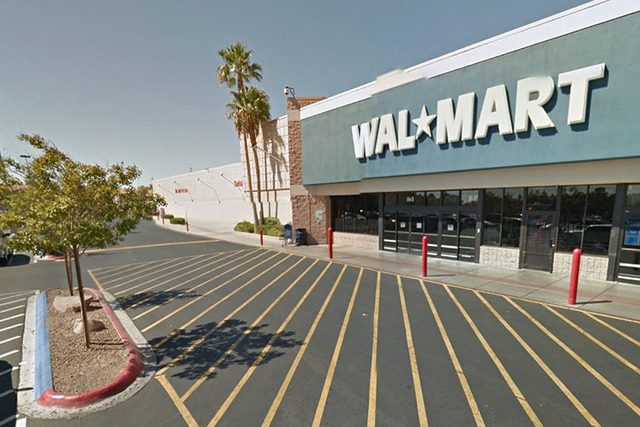Prepaid debit cards endanger personal security

Beware what you grab when you are selecting a rechargeable prepaid debit card at stores such as Wal-Mart and grocery stores.
Las Vegan Brian Rohan wished he had.
Rohan was shopping at Wal-Mart on Rainbow and Cheyenne avenues and picked up a $50 prepaid debit card, paying cash for it on Nov. 29. He bought it for his daughter, who wanted to buy something online. Cash wouldn’t do; she needed a way to transfer money via the Internet.
When his 17-year-old daughter tried to activate the card at www.WalmartMoneyCard.com, she was asked to provide all her personal information, her name, her address, her phone numbers, her email address, her birthday and — the final straw — her Social Security number. Her father said absolutely not to that final request, concerned she would be vulnerable to identity theft.
He tried to return the card to Walmart to get his $50 back, but the store refused to return his cash payment. He said a supervisor told him, “Once you’ve bought the card, it’s yours, you own it. It can’t be exchanged or returned.”
What he found the most appalling is that the demand for all the information was made because of the Patriot Act, according to the website.
It seemed ridiculous to him (and to me). But apparently it’s one more thing the government wants to know about you to prevent terrorism and money laundering.
Consumer Reports, my favorite magazine right after Vanity Fair, warned people in March 2012 about the multitude of dangers of prepaid debit cards and how poorly they hold up compared with credit and debit cards from regular banks.
Their advantages are that you can get one if you don’t have a bank account, and no credit check is required. You can have wages direct deposited to the card, and the cards can be used to pay utilities, among other things.
For people without bank accounts, this is an option. But not necessarily a great one.
The disadvantages: high fees. Sometimes you pay a fee even if you don’t use the card for a while. If you’re trying to build up your credit score, these cards don’t do the trick. Thieves can steal and use the card, and customers may not get their money back.
On the back of this particular Wal-Mart MoneyCard Preferred were the details of the fees, including the $6 purchase fee, the $3 monthly service fee, a $4.95 fee to reload the card with more cash, a $2 fee to use it at an ATM (which may also charge a separate fee), a $1 fee to see what the balance is at an ATM, a $3 replacement fee, and yes, other fees are also possible. Some cards charge for a call to customer service, which seems absurd.
Nowhere in the exterior of the packaging in the Wal-Mart MoneyCard Preferred did it reveal the buyer was going to have to provide a hacker’s dream of personal information. Rohan wouldn’t have bought the card if he had known that would be required. Gift cards are available that don’t require personal information.
Wal-Mart didn’t answer repeated requests for comment Monday and Tuesday.
Consumer Reports said the prepaid debit cards have “dangers and traps” for users. “Consumers who use prepaid cards will be at risk of losing all their money and face multiple, high and sometimes confusing fees.”
Despite that, these cards are gaining in popularity, behind regular credit and debit cards. But Consumer Reports called them a “shaky alternative to a bank account and a debit card.”
The Consumers Union, the advocacy arm of Consumer Reports, made a series of recommendations to the Consumer Financial Protection Bureau, suggesting changes, including lowering and simplifying fees, eliminating inactivity fees and better information clearly shown in the package. (The Wal-Mart card did have the fees listed on the back of the package.)
In November, the bureau made some suggestions to improve the prepaid cards by making it easier to compare one card with another, as well as provide some protections for people.
The bureau is asking people to share their opinions on its website before a final rule is passed.
Many of these cards are going to be purchased this season, and many customers will be shocked by high fees and horrified by demands for their personal information to activate cards.
Experts predict prepaid cardholders are likely to be identity fraud targets, so it looks like Rohan was smart to realize he shouldn’t provide all that information to the cyberworld. He wanted to warn others to be careful about the prepaid rechargeable debit cards and learn from his mistake, a mistake that cost him $50.
Consider yourself warned.
Jane Ann Morrison’s column appears Thursdays. Email her at jmorrison@reviewjournal.com or leave a message at 702-383-0275. Follow her on Twitter @janeannmorrison.












